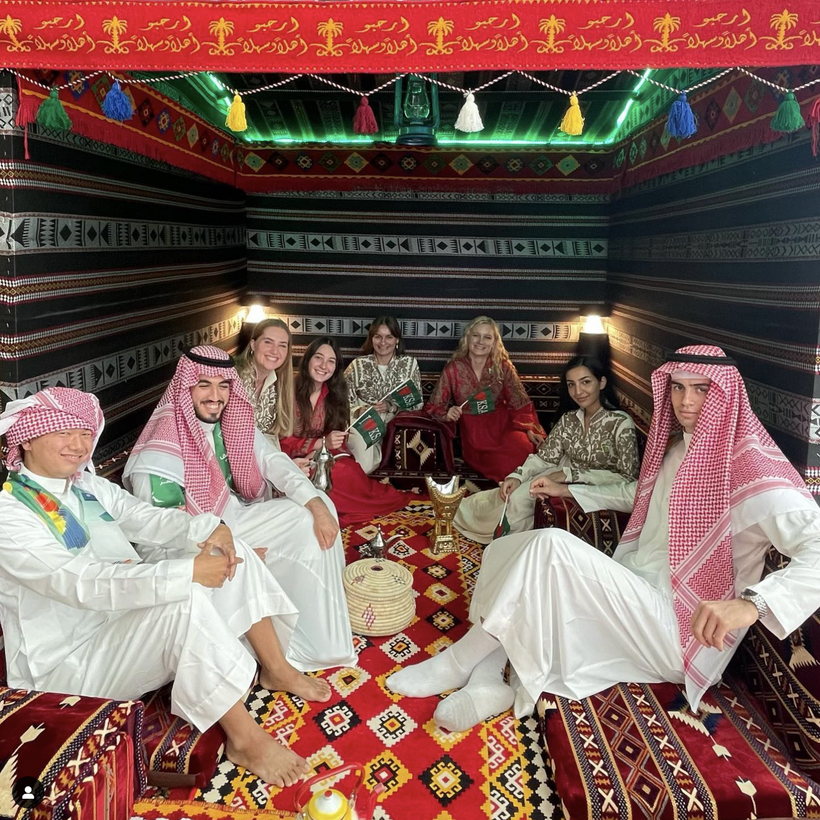Guilherme Hortinha first heard about Gateway KSA when he moved from Lisbon to become a student at King’s College London. The program was offering an all-expenses-paid, 10-day trip to Saudi Arabia. It was hard to pass up. “You’re going to go to a country that you’ve never been to before with a group of 15 students from around the world? I was like, Of course, sign me up.”
Since 2018, Gateway KSA—a nonprofit backed by companies controlled by the Saudi royal family—has sent hundreds of young students on these tours. It’s one of the most focused examples of the country’s attempts at increasing its soft power under Crown Prince Mohammad bin Salman. According to its Web site, the program “throws open the door to the Kingdom of Saudi Arabia.” Just how far the door opens is another question.

